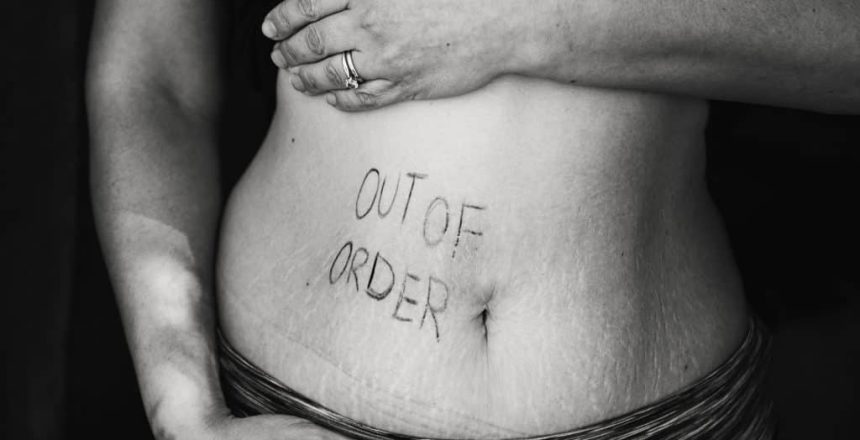Almost 25% of the population suffers from digestive diseases that can be tough to diagnose, so having a diagnosis like IBS quite common.
In many cases, it can be tough for doctors to differentiate and properly diagnose what digestive disease a person has simply because of how overlapped the symptoms can be between these disorders. Therefore proper testing and diagnosis by an experienced healthcare professional is important first step in the healing process.
IBS itself is a “diagnosis of exclusion”. What that means in the medical world is that IBS is a diagnosis that is ‘left over’ after all other possible ailments are ruled out. Quite honestly, I find it overused as a diagnosis, simply when the medical professional cannot quite figure out what the actual cause of symptoms is.
This is where naturopathic medicine comes into play, as we are always searching for the root cause. Sure you could have symptoms of IBS.. but WHY?
Now I want to introduce something known as SIBO. You may or may not have heard of this before… SIBO is a condition that has over the years started to become more widely recognized. Likely because of how common it has become. SIBO is a chronic intestinal disorder where we simply have way too much bacteria in the small intestine.
IBS and SIBO can present with similar symptoms. But what exactly are these conditions, and what is the connection between them?
Let’s break it down…
What is SIBO?
Small intestinal bacterial overgrowth, aptly shortened to its acronym SIBO, is a type of disorder that occurs when gut bacteria that is meant to live in the large intestine, moves up into the small intestine and begins fermenting on the food you eat daily! This out-of-control growth causes an overabundance of gut bacteria within the small intestine, and the fermentation of our foods is what leads to symptoms.. and down the line can cause us to develop a Leaky Gut – or even a variety of autoimmune ailments and other chronic conditions.
Researchers believe that the cause of SIBO may be other digestive illnesses or an abnormality in the size or location of the gut. It’s unclear how many people suffer from SIBO, but its prevalence ranges between 1% and 40%.
What are some SIBO symptoms to look out for?
- Constipation
- Chronic diarrhea (or mixed with constipation)
- Feeling of incomplete evacuation after a bowel movement
- Chronic stomach bloating/ distention
- Abdominal pain or discomfort
- Fatigue
- Flatulence
- Nausea
- Acid reflux/heartburn/GERD
SIBO has been known to drive certain conditions such as: Rosacea, anemia, joint pain, interstitial cystitis, resistant weight loss, nutritional deficiencies and of course… IBS!
What is IBS?
IBS, shortened from Irritable Bowel Syndrome, is another type of digestive disorder. According to research, roughly one in 10 people across the globe deal with IBS daily, and it is one of the most prevalent digestive disorders driven by a faulty connection between the gut and the brain.
While IBS can present similarly to SIBO, it affects the large intestine, whereas SIBO affects the small intestine. Symptoms that develop in both conditions include:
- Bloating and distension
- Diarrhea
- Abdominal pain
- Flatulence
There are three types of IBS: IBS-D, IBS-C, and IBS-mixed, a combination disorder that has symptoms of both IBS-D and IBS-C. IBS-D causes a person to experience diarrhea as one of the main symptoms, whereas IBS-C causes constipation. Both types are associated with SIBO, but it is more common in people with IBS-D.
What is the connection between SIBO and IBS?
While SIBO and IBS can occur without the other, they are often considered co-conditions. Research has found that as many as 78% of people with IBS also have SIBO. Medical researchers are beginning to believe that SIBO could cause someone to develop IBS.
The reason researchers continued to dive into the connection between the two is because of IBS-driven gut dysbiosis, which is the imbalance of gut bacteria. SIBO is technically dysbiosis, and IBS symptoms can be brought on by dysbiosis. Because of this, the conclusion that the two may go hand-in-hand holds weight in the medical research world.
What you can do about SIBO and IBS
Recent studies are filling in the information gaps of SIBO-driven IBS. This newfound information may also provide a new look at treatment options.
The crucial thing to do is get a proper diagnosis. Since IBS can present similarly to SIBO, it might be easier to accept that you have an incurable condition. However, many people may have SIBO that brings on IBS symptoms, so treating the SIBO through naturopathic medicine may reduce or even heal IBS.
If you are experiencing digestive disorder symptoms or have been diagnosed with IBS in the past, you may have SIBO and not know it and require treatment to ease symptoms. Book a free discovery call with me today to determine what your symptoms mean and what we can do about them.

